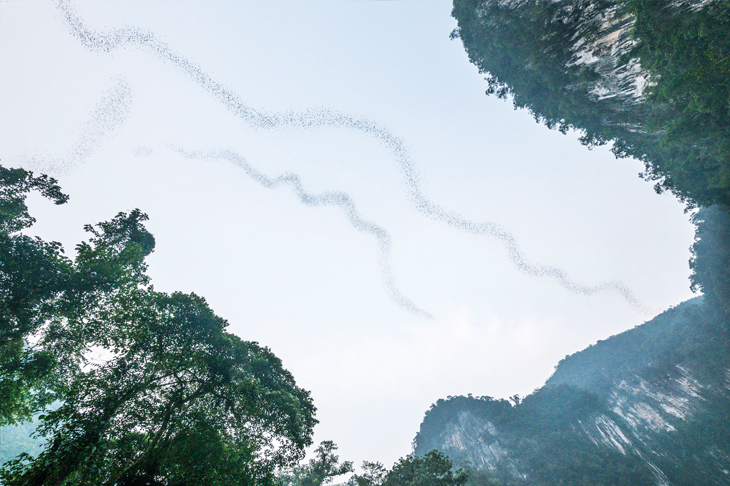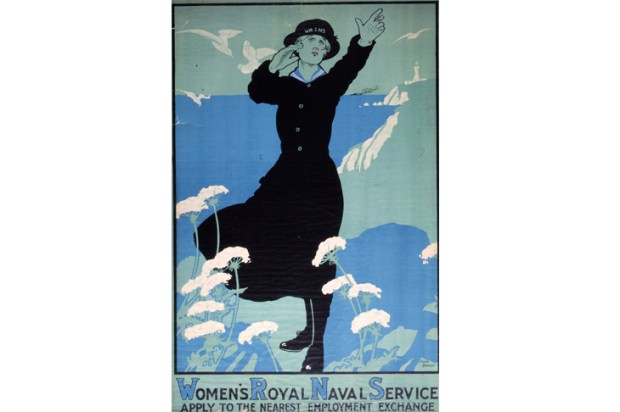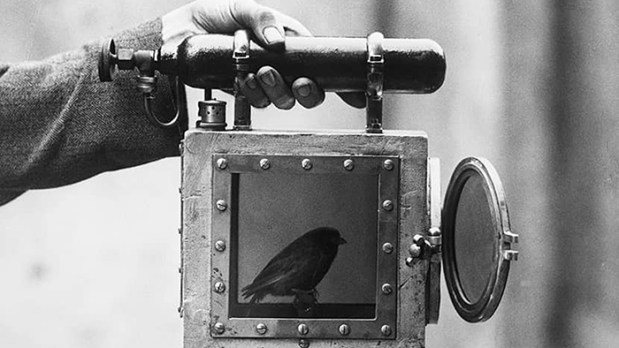Eton turns out prime ministers of various stripes and patches, but it also forges fine explorers. It seems to prepare its alumni perfectly for flying snakes, scorpions so large you can put leads on them and leeches in waving battalions; titanic drinking and dancing ceremonies (our explorer, Robin Hanbury-Tenison, suffers repeated blistering on the dance floor); the friendship of head-hunters; and for the exacting business of leading world-protecting, people-nurturing expeditions into the planet’s wild and vulnerable regions. In the school’s natural history museum, pupils can now see a parang, presented to Hanbury-Tenison by his tribal friends, its handle shaped like a hornbill, its razor-sharp edge responsible for hacking off more than 100 heads.
The Eden of this book’s title is the Gunung Mulu National Park in Sarawak, Borneo, which had only just been gazetted when the author heard of it. It’s the story of his 1977 expedition, which he has written about before (most recently for a small press in 2004); but here is the blockbuster version, a compendium of diaries and recollections. Finding Eden is a fount of marvels, wisdom and replicable successes. Indigenous people are the best protectors of their environment, Hanbury-Tenison insists, referring to tribes saving and conserving land they have been granted in Brazil and in Papua as well as in Borneo. The protection of the Borneo rainforest and its Penan people has not been a huge success, logging and palm-oil production having been the scourge of both, but both are better off for the efforts and commitment of Hanbury-Tenison and his teams, for the environmental projects they helped inaugurate.
A founder of Survival International, Hanbury-Tenison is a delightful and driven man. Leadership, he decided, meant taking full responsibility for everything. And Borneo is the sort of place where things go colourfully wrong, daily:
Found about 30 huge cockroaches in my boxes and put down mothballs. Also met an 18 cm centipede which I chopped in half with my parang. Both ends went on wiggling and fighting until they were pushed down between the floorboards.
There are the poisons, including the Anacardiaceae trees, which ooze a black sap so toxic it causes paralysis. And then there are the demands of the scientists:
Sue fed her leeches, and we all dutifully stuck them on our arms and legs. If they were tiger leeches we hopped about to begin with from the pain. John and I are the only three tiger-leech men. As they dropped off we all bled, looking as though the camp had been bombed.
The project team was astonishing, composed of indefatigable, fearless and eminent scientists. They found themselves surrounded by new species, living among gigantic unexplored caves adjacent to impenetrable valleys and limestone sinkholes where no human had ever been. Gathorne Medway (later Earl of Cranbrook) finds a bat he believes must be a species new to science. Hanbury-Tenison wonders excitedly which institution might verify this. The Smithsonian? The Natural History Museum? ‘No, Robin,’ says Gathorne, the author of Mammals of Borneo.‘You misunderstand me. If I think it is a new species of bat, it is a new species of bat.’
Hanbury-Tenison concerns himself with the forest’s residents — ‘sincere and amiable’ people, as he puts it, who identify him as a piece of historic good luck, and a champion. Of his friend Nyapun, he writes: ‘He was the most complete man I have ever known. He understood and managed everything about him: his family, his daily life.’
Hanbury-Tenison’s writing and thinking about the Penan is the core of the book, couched like a philosophical enquiry in the middle of an Indiana Jones film. ‘Jesus would have loved these people,’ he writes.
There is no cant, bigotry or hypocrisy about them, the human faults which angered Him most. These Penan people are not ashamed, nor are they proud. They simply are. They are, to a quite shattering degree, self-sufficient, and that is something the modern mind finds impossible to grasp. Surely they must want something from me…
Finding Eden is a record of a pristine world at the moment of its discovery, a loving portrait of a people and a place, a superb primer on leadership, and a call to arms, demanding that we relish and protect what is left of the wild world. I absolutely recommend it.
Got something to add? Join the discussion and comment below.
Get 10 issues for just $10
Subscribe to The Spectator Australia today for the next 10 magazine issues, plus full online access, for just $10.
You might disagree with half of it, but you’ll enjoy reading all of it. Try your first month for free, then just $2 a week for the remainder of your first year.














Comments
Don't miss out
Join the conversation with other Spectator Australia readers. Subscribe to leave a comment.
SUBSCRIBEAlready a subscriber? Log in